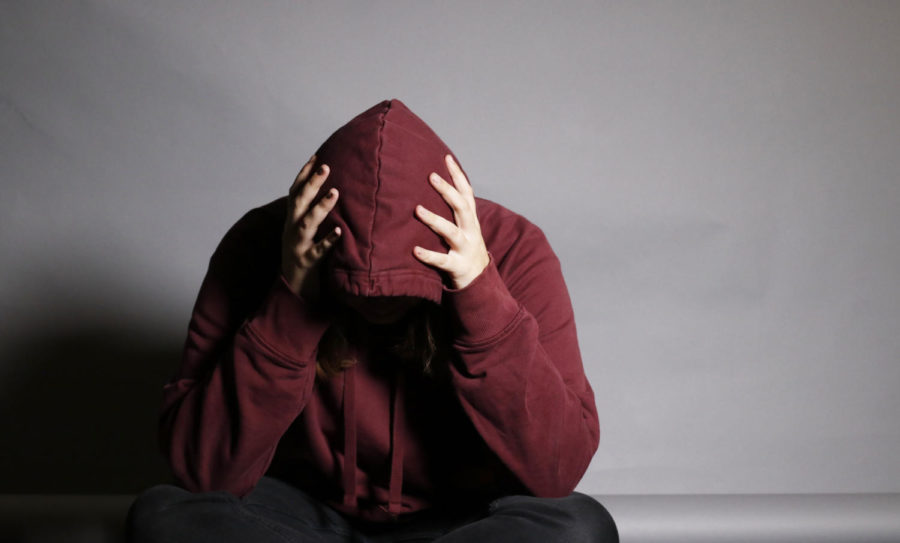Tyrrell: Students should prioritize themselves during midterm season
Photo Illustration by Katlyn Campbell
SAD can lead to typical depression symptoms such as lack of energy, appetite loss or weight gain, fatigue and difficulty concentrating.
October 17, 2018
It’s the busiest and best time of year: the leaves are changing, Halloween and homecoming are just around the corner and, unfortunately, it’s also midterm season. Most of us are struggling to find time to squeeze in meals and sleep, let alone relaxation time.
The cherry on top of all this? As the leaves change and the temperature drops, it’s also getting darker earlier; for approximately 10-20 percent of people, this decrease in sunlight can lead to a mild depression called Seasonal Affective Disorder, or SAD.
SAD most often affects people in the fall and winter months, and can lead to typical depression symptoms such as lack of energy, appetite loss or weight gain, fatigue and difficulty concentrating. Luckily, SAD symptoms are usually easily treatable with the aid of light therapy, a form of light exposure therapy that counteracts the effects of SAD with minimal side effects.
Light therapy typically involves 30 minutes of exposure to a sun lamp every day, which is not a particularly strenuous task to accomplish, especially when compared to treatment for other types of depression and anxiety. But for overly busy and broke college students, finding the time to visit a therapist, sit down for 30 minutes every day and cough up the $150 price tag for a sun lamp might seem like more of a joke than a realistic plan.
I’ll be the first to admit that I am not the best at taking care of myself or even paying attention to what’s going on with my mental health. It’s so easy to put it on the back burner in comparison to other priorities like exams or work, and so much less work to tell yourself that you’ll just deal with it later.
But unlike failing an exam or missing a shift at work, the consequences of ignoring your mental health are going to get in the way of everything else you have going on in your life. It’s almost impossible to take care of your responsibilities, grades and even your relationships if you aren’t taking care of your own brain first.
This fall, I encourage all of you to take a moment and assess how you’re doing mentally. If the answer is “not too hot,” don’t just shake that off. The decrease in sunlight, the pile of midterms and responsibilities that characterize October — all of these things can multiply the effects of even mild anxiety or mood disorders. Pay attention to how you’re doing, and be proactive about addressing it if you’re struggling.
It’s too easy to make your mental well-being your last priority, but this time of year more than ever it should come first. Give yourself that extra hour of sleep. Stay hydrated. Be nice to yourself. If you’re having a bad day, give in to that bad day and don’t feel guilty if you get nothing done. Talk to a therapist. Talk to your friends. Reach out to your friends, because they might be struggling too.
Remember that you’re never alone; approximately one in four people will struggle with mental health problems during their life, and that percentage is even higher among college students. This time of year is hard for a lot of people already; don’t make it harder for yourself by disregarding your mental health. I promise you, it’s more important than any exam grade, homecoming activity or shift at work will ever be.
















